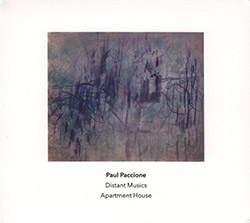
Influenced by the New York School of composers (Cage, Feldman, &c.), composer Paul Paccione revisits and revises five of his compositions written 40 years prior, performed by a 10-piece configuration of London's Apartment House; beautifully contemplative pieces linked together through common threads, the momentum of individual moments absorbed by the presence of the larger work.
In Stock
Quantity in Basket: None
Log In to use our Wish List
Shipping Weight: 3.00 units
Sample The Album:
Paul Paccione-composer
Heather Roche-clarinet
Raymond Brien-clarinet
Nancy Ruffer-flute
Emma Williams-flute
Mira Benjamin-violin
Chihiro Ono-violin
Amalia Young-violin
Angharad Davies-violin
Bridget Carey-viola
Anton Lukoszevieze-cello
Ben Smith-piano
Click an artist name above to see in-stock items for that artist.
Label: Another Timbre
Catalog ID: at224
Squidco Product Code: 34563
Format: CD
Condition: New
Released: 2024
Country: UK
Packaging: Cardboard Gatefold
Recorded at Goldsmiths College, in London, UK, from May, 2023, to January, 2024, by Simon Reynell.
Another Timbre Interview with Paul Paccione
Tell us about your background and how and when you came to experimental music?
I was born in 1952 in New York, and raised in Brooklyn. Like many baby boomers, my earliest musical experiences were playing electric guitar in neighborhood rock and roll garage bands. We played cover versions of the latest music we heard on the local rock radio stations. I learned most of this music by rote - listening repeatedly to successive fragments of a recording until I was able to accurately replicate them on the guitar. This was my first attempt at getting inside a piece of music.
My formal musical training was primarily in and around colleges and universities. I began formal music study at the Mannes College of Music (B.M., 1973) in New York City, with a major in classical guitar. Mannes's curriculum was modeled on that of a traditional European music conservatory. It was completely different from my previous informal music training and was a totally new world for me.
My first-year music theory teacher, Eric Richards, was a composer. He remained a mentor, close friend and colleague of mine until his death in 2020. Eric was an extraordinary teacher and he turned that class into something much more than the usual general introduction to the prescribed rules of harmony. He introduced me to the world of avant-garde music. His teaching and guidance, as well as his own visionary compositions and compositional thought, exposed me to a vast new musical landscape. He opened up a whole new world of sound and forms of expression that inspired me to begin composing.
Subsequently, I changed my focus from classical guitar to music theory. The two music theory subjects that were of particular interest to me at Mannes were Species Counterpoint and Schenker Analysis. I continue to be influenced compositionally by the attention each brings to bear on voice-leading and the ways in which the musical surface is related to its skeletal underpinnings.
On Richards's recommendation I began private composition studies, outside of Mannes, with composer/visual artist Harley Gaber. I was his only student. These lessons continued for several years. From him I learned to examine, critique and ultimately trust in my own intuitions. He reflected in his teaching a keen knowledge of modern art and had the unique ability to articulate both musical and notational concerns/possibilities in terms of another medium. At this time, he was just beginning to compose what he described as "slowed down music." When he died in 2011, he was recognized as one of the early pioneers of minimalist drone and spectral music.
My early student compositions were strongly influenced by the freely atonal compositions (Opus 5-12) of Anton Webern. As a point of entry into his music, I sometimes copied the scores from these works by hand, closely examining the individual aspects of the music (phrasing, dynamics, articulation) and, in particular, their cell-like/organic construction wherein everything was attributable to some form of developing variation. I was also influenced by the music of Morton Feldman, in particular his compositions "Durations I-V" and "Between Categories." What I most admired was his meticulous sense of instrumentation in conjunction with exact registral pitch placement. What interested me, in particular, was Feldman's attempt in these works to bridge the gap between stasis and movement, as well as determinate and indeterminate methods and outcomes in music.
In addition to my music studies, New York City itself was an important part of my education. I immersed myself in everything the city had to offer (museum exhibits, theatre, art-house movies and concert performances). It was a fertile period for the production and performance of contemporary music and modern music was an important part of the city's artistic culture. Pierre Boulez was the recently appointed music director of the New York Philharmonic and he regularly programmed twentieth-century music. Elsewhere in the city one could find regular performances of the music of John Cage and Morton Feldman, as well as other American experimental composers. In Soho, the music of the emerging minimalist composers was first being presented. Around the corner from Carnegie Hall, the most recently published new music scores of Berio, Bussotti, Boulez, Cage and Feldman were readily available for browsing and purchase at Patelson Music House. By way of Harley's organizing and presenting new music concerts at the Museum of Modern Art and other venues, I came in contact with a diverse community of performers and composers - a community of artists that I hoped to one day become part of.
Upon graduating from Mannes, I began graduate studies in music composition and theory at the University of California, San Diego (M.A., 1977) to study composition with Harley's former composition teacher, composer Kenneth Gaburo. When Gaburo unexpectedly made the decision to extricate himself from the university in order to devote his energies to his music publishing business, Lingua Press, I continued my composition studies with him at his home in La Jolla, often in exchange for assisting him in various tasks related to the press (for example, music copying).
My composition studies with Gaburo focused primarily on the numerous potentials in musical text setting (what he referred to as "compositional linguistics") - this would begin for me a continued engagement with vocal music. Unlike my lessons with Harley, whose approach to music was almost Zen-like, everything (life and music) was a form of confrontational theatre for Kenneth that involved an unrelenting questioning of musical assumptions. In this sense, every lesson was a process of musical, as well as personal, discovery. (Reading list included Jerzy Grotowski's "Towards A Poor Theatre," Peter Brooks's "The Empty Space" and Jacques Maritain's "Creative Intuition in Art and Poetry.")
U.C.S.D. was a center for American experimental music and it has remained so. The composition faculty was made up of composers whose music, compositional aesthetics, and approach covered a wide range. They included Kenneth Gaburo, Roger Reynolds, Pauline Oliveros, Robert Erikson, Robert Shallenberg, Bernard Rands and Wilbur Ogdon (with whom I wrote my thesis on selected English language text settings of Igor Stravinsky). The music of my fellow student composers and performers covered an equally wide range of interests and backgrounds. The overriding purpose was for all performers and composers (faculty and students) to explore (experiment) and discover new means/forms/avenues of collaboration and making music together. While at U.C.S.D. I met my future wife, clarinetist Molly Lash - beginning what continues to be a highly productive and collaborative working relationship in music.
I later studied composition with composer/conductor/violist William Hibbard, at the University of Iowa (PhD, 1983). I first came in contact with Hibbard's music when it was published in Lingua Press and admired the music's clarity, transparency and rigor. Hibbard was conductor of the Center for New Music - an independently financed group of professional musicians who were dedicated to performing contemporary music on a regular schedule. Both my wife and I became closely associated with the Center, she as resident clarinetist and myself as assistant to the conductor. As a conductor, Bill knew exactly what musical elements and factors of a piece required the conductor's attention, as well as the most efficient means of communicating to the performers the composer's intentions.
I came to Iowa with a backlog of compositional ideas on the direction I wanted my music to take. It was by way of Hibbard's openness to and encouragement of these ideas, as well as his leadership at the Center and his impeccable ear for pitch relationships and orchestration, that I realized my ideas and found my own compositional voice.
So have you always earned a living from music, or did you have to work doing something else?
To be influenced is to be taught and this was especially the case of my own musical life and career. All of my composition teachers imparted to me a sense of something being left unfinished and open to further exploration. I cannot overstate the important role my teachers had in my musical development and this is the main reason I hoped to devote much of my professional life to teaching.
I joined the faculty at Western Illinois University in 1984 and I retired in 2018. The relationship between my teaching and music was reciprocal - one informed the other. I taught a wide range of undergraduate and graduate music theory/composition courses (chromaticism, orchestration, counterpoint, composition, analysis, 20th/21st - century compositional techniques and American music). It was by way of communicating my ideas on these topics to others that I was able to clarify my own thoughts and sharpen my skills.
The University community provided me with the opportunity to establish productive and collaborative relationships with a wide range of performers, conductors, and ensembles who were dedicated to performing my music. As a result, the majority of my compositions are written with specific musicians in mind. In regard to musical style and language, this has resulted in a diverse body of music for an equally diverse range of instrumental combinations and musical genres (chamber music, large ensemble, opera). However, in spite of the diversity, the same compositional perspective and considerations are always present in my mind. In addition to teaching, I was codirector/cofounder of the department's annual New Music Festival, through which a large and diverse number of national/international composers and performers visited the campus, over the course of 31 years, to share their music.
Can you tell us about the pieces on the CD? Who were they originally written for, and how often have they been performed? Were you part of a circle of like-minded musicians, or were you largely working in isolation when you composed these? How does it feel coming back to pieces that you wrote about 40 years ago?
I composed seven works during the three years I was at Iowa - all of which received their first performances by the Center and were subsequently performed, by others, at various festivals in different settings. Four of these compositions appear on this recording. It is the first time they have been made widely available on compact disc as one unified entity.
The music presented on this recording is contemplative in nature. Individual moments tend to become absorbed into the overall presence or aura of the music. Each individual composition bears a trace of what has preceded it and each individual composition holds itself open to works that will follow it. In this sense, there are no clearly defined boundaries between pieces but there exists between the works a system of intertextual relationships.
In all of these works my compositional means is one of distillation and intensification - focusing on what is inside the sound without sacrificing the music's overall sense of harmonic motion. I try to get to the essence of the musical expression with each piece through both intuition and recognition of what is irreducible in the music - an orientation to the material itself. In each piece my desire is to create one uninterrupted musical continuity, with each successive sound evoking sensations of the same order and of the same purity as the first sound.
My goal is to strike a balance between: the horizontal (linear) and vertical (harmonic) dimensions of music; between pitch (that which is measured) and sonority (orchestration); and between structure (the network of relationships) and atmosphere (that place in which the work exists - its sense of place).
When I retired from teaching, it was my plan to quietly reflect on my past compositional work, continue to compose new music, and pursue performances and recordings of my music.
For me, returning to pieces I composed forty years ago is not unlike reencountering a dear old friend from the past, whom you haven't seen for many years but have a deep connection, and with little or no effort picking up on things exactly where you left them a long time ago. I am particularly grateful to Anton Lukoszevieze and all of the performers in Apartment House for providing me the rare opportunity to do so.

The Squid's Ear!
Artist Biographies
• Show Bio for Paul Paccione "Paul Paccione (1952) is an American composer born and raised in Brooklyn, New York. His music is noted for its distinctive orchestration, contrapuntal refinement, lyricism, clarity of expression and minimalist sensibilities. Paccione's love of the popular music of the 1950's and 60's awakened his initial musical interests. While studying classical guitar, at the Mannes College of Music (B.M., 1974), his first-year music theory teacher, composer Eric Richards, first introduced him to the world of modern music - inspiring and encouraging him to begin composing. This, in addition to Paccione's own desire to express himself in sound, led to his decision to begin studies in music composition. He shortly thereafter began private composition studies with composer Harley Gaber - from whom he learned to trust his musical instincts. He continued his composition studies at the University of California, San Diego (M.A., 1977), and studied composition, privately, with composer Kenneth Gaburo. His studies with Gaburo focused primarily on the numerous potentials in musical text setting. Paccione maintains a sustained interest and attachment to vocal music He later studied composition with composer/conductor William Hibbard, at the University of Iowa (PhD, 1984) and was Hibbard's assistant at the Center for New Music. It was by way of Hibbard's impeccable ear for pitch relationships and orchestration that Paccione first began to discover his own compositional voice. Intermittently, he studied composition with Pauline Oliveros, Bernard Rands and Ralph Shapey. Other than his teachers, the composers of the twentieth-century whose music and thought have had significant influence on his own music and thought include: Igor Stravinsky (for his stylistic diversity, coupled with compositional consistency), Anton Webern (for both the contrapuntal rigor of his music, as well as his belief in musical structure as an organic process), Claude Debussy (for the fluidity of his music and sensual treatment of sound), Erik Satie (for his controlled restraint), Morton Feldman (for his meticulous sense of instrumentation in conjunction with exact pitch placement, as well as his trust in his own musical intuitions), and John Cage (for his never ending sense of experimentation and his openness to all forms of compositional influence that exist outside of music, including literature, painting, and philosophy). I He is an active composer whose works are widely and frequently performed, both nationally and internationally. He has been described as "a composer who has a personality of his own and the ability to express that personality within more than one musical idiom." His music has been described as "consistently compelling and often extraordinarily moving" In December of 2014, Western Illinois University's Opera Theatre Company presented the first performances of Paccione's opera "The World Is Round," based on the book by Gertrude Stein. The opera was a finalist for the American Prize in Opera in 2015. Paccione's music is published by Frog Peak Music, Lingua Press, American Composers Edition and SCI Journal of Music Scores. A composer "Portrait" recording of chamber music composed between 1980-1990, was recently released (February, 2024) on the Another Timbre label, performed by the London-based contemporary music ensemble, Apartment House. In 2012, New World Records (www.newworldrecords.org) released a c.d. recording devoted entirely to his chamber and vocal music, titled, "Our Beauties Are Not Ours." A recording of his most recent solo piano music was released in October, 2021 ("Music for Piano", Navona Records). Additional recordings of numerous individual compositions are available on the Frog Peak, Navona and Capstone labels. (See reviews under "Recordings.") He has lectured and written numerous articles and reviews on various aspects of modern music and particularly on the interplay of cultural conditions and compositional thought in the 20th and 21st centuries. His writings on music have appeared in Perspectives of New Music, ex tempore, College Music Symposium, American Music, the Journal of Music Theory Pedagogy and on liner notes for New World Records. He has been a preconcert lecturer for the Chicago Symphony. Paccione joined the music faculty at Western Illinois University in 1984 where he was Professor of Music Theory/Composition. He regularly taught undergraduate and graduate courses in Music Theory, Music Composition, Musical Analysis, Counterpoint, Materials of Twentieth/Twenty-first Century Music and History of American Music. During his teaching career at Western, he received six Faculty Excellence Awards and was named the 1988 Outstanding Teacher in the College of Fine Arts. He was named Western Illinois University's Distinguished Faculty Lecturer for 2002 - the first Music faculty member to do so. His lecture was subsequently published in the music journal "ex tempore," (see Writings). He received the Outstanding Creativity Award from Western's College of Fine Arts in 1988 and 2012. He was co-founder and co-director of Western's annual New Music Festival. He retired from Western in the spring of 2018." ^ Hide Bio for Paul Paccione • Show Bio for Heather Roche "Born in Canada, clarinetist Heather Roche trained in England, lived in Germany for 7 years and now lives in London. She has performed at some of the major European festivals, including musikFest (Berlin), BachFest (Leipzig), Musica Nova (Helsinki), Acht Brücken (Cologne), the International Computer Music Conference (Huddersfield, Ljubljana), the Dias de Música Electroacústica (Seia, Portugal) and the Agora Festival (Ircam, Paris). She has also performed solo programmes at the Zagreb Music Biennale, the Huddersfield Contemporary Music Festival, the New York Electroacoustic Symposium, at CIRMMT (Montreal), Unerhörte Musik (Berlin), Eavesdropping (London), and with the Birmingham Electroacoustic Sound Theatre (BEAST). She has performed with ensembles and orchestras including Musik Fabrik (Cologne), the WDR Orchestra (Cologne), mimitabu (Gothenburg), the London Symphony Orchestra (London), ensemble Garage (Cologne), ensemble interface (Berlin), the Riot Ensemble (London), the Alisios Camerata (Zagreb), and ensemble proton (Bern). She also plays across the UK in a trio with Carla Rees (flutes) and Xenia Pestova (piano) and in 2015 formed an duo with the accordionist Eva Zöllner, with whom she has played across Germany, the UK and in Portugal. She is a founding member of hand werk, a 6-person chamber music ensemble based in Cologne, and worked with the group from 2010-2017. She has solo CDs out on the HCR/NMC and Métier labels. Please see the Discography for further details. In 2014 she was awarded a DIVA (Danish International Visiting Artists Fellowship), and lived in Copenhagen for two months. Since 2016 she has acted as the Reviews Editor for TEMPO, a quarterly journal for contemporary music published by Cambridge University Press. Her website is host to one of the most widely read new music blogs on the Internet. In 2017 it had 75,000 hits from around the world. She successfully crowdfunded in 2014 in order to host her first composition competition. Six young composers were chosen out of 270 applicants to write new pieces, which were premiered in 2016. She is a fervent advocate of collaboration, and her PhD research at the University of Huddersfield (under the supervision of Dr. Philip Thomas) explored the nature of dialogue within performer-composer relationships. She has given workshops in instrumental technique and/or iPad use in performance all over Europe, for example in London, Munich and Copenhagen. Heather completed her Masters of Music (Orchestral Training) in 2006 at the Guildhall School of Music and Drama in London, studying under Joy Farrall and Laurent Ben Slimane, in addition to conducting with Sian Edwards. Following her degree she completed residencies with the International Ensemble Modern Academy, at IMPULS in Graz and with ensemble recherche in Freiburg, the Darmstadt Summer Courses 2008 and 2010 and the International Ensemble Modern Academy in Innsbruck, Austria. She has performed in masterclasses with Michael Collins, Ernesto Molinari and Shizuyo Oka, to name a few. She completed her BMus in 2005 at the University of Victoria, Canada, studying under Patricia Kostek." ^ Hide Bio for Heather Roche • Show Bio for Raymond Brien Raymond Brien is a clarinetist, Composer and Artistic Director of the Thinking Minds Project. ^ Hide Bio for Raymond Brien • Show Bio for Nancy Ruffer "Nancy Ruffer was born in Detroit and received a Master of Music degree from The University of Michigan. She received a Fullbright-Kays Scolarship in 1976 to study at the Royal Academy of Music, London, and she has remained in London working as a freelance flautist specialising in contemporary music. Composers who have written for her include Michael Finnissy, Chris Dench, John White, Christopher Fox, Ian Wilson and Graham Fitkin. In 1984 she was awarded the Kranichsteiner Prize for Performance at Darmstadt and she was elected an Associate of the R.A.M. Nancy Ruffer is principal flute of the ensembles MusicProjects/London, Matrix, Almeida Ensemble and Topologies as well as performing with ensembles of the Royal National Theatre. In addition she records regularly for the BBC and performs in festivals and concert halls throughout Britain and abroad. In 1999 she toured Canada performing works by, among others, Ferneyhough and Dillon, and in 2002 she toured Georgia and Tennessee with pianist Helen Crayford, performing works by British and American composers. Ms Ruffer was awarded the Kranichsteiner Prize for Performance at Darmstadt in 1984 and was appointed an Associate of the Royal Academy of Music." ^ Hide Bio for Nancy Ruffer • Show Bio for Emma Williams Emma Williams: flute & piccolo player, freelance orchestral musician, therapeutic functional movement, pelvic health coach & yoga teacher. "I trained at the Royal College of Music as a flautist and have been working as a freelance performing musician and teacher for over 25 years. I came to yoga in my late 20's having had to cope with recurring fractures and broken bones due to Polyostotic Fibrous Dysplasia, a rare soft bone condition which I was born with. As well as being a freelance performing musician, I am also a qualified Hatha yoga teacher with a particular interest in anatomy and breathing. My passion is women's health, supporting and informing women about pelvic health." ^ Hide Bio for Emma Williams • Show Bio for Mira Benjamin "Mira Benjamin is a Canadian violinist, researcher and new-music instigator. She performs new and experimental music, with a special interest in microtonality & tuning practice. She actively commissions music from composers at all stages of their careers, and develops each new work through multiple performances. Current collaborations include new works by Anna Höstman, Scott McLaughlin, Amber Priestley, Taylor Brook and James Weeks. Since 2011, Mira has co-directed NU:NORD - a project-based music and performance network which instigates artistic exchanges and encourages community building between music creators from Canada, Norway & the UK. To date NU:NORD has engaged 79 artists and commissioned 62 new works. Through this initiative, Mira hopes to offer a foundation from which Canadian artists can reach out to artistic communities overseas, and provide a conduit through which UK & Norwegian artists can access Canada's rich art culture. Originally from Vancouver, British Columbia, Mira lived for ten years in Montréal, where she was a member of Quatuor Bozzini. Since 2014 she has resided in London (UK), where she regularly performs with ensembles such as Apartment House, Decibel, and the London Contemporary Orchestra Soloists, and is currently the Duncan Druce Scholar in Music Performance at the University of Huddersfield. Mira is the recipient of the 2016 Virginia Parker Prize from the Canada Council for the Arts. The prize is awarded annually to a Canadian musician in recognition of their contribution to the artistic life in Canada and internationally." ^ Hide Bio for Mira Benjamin • Show Bio for Chihiro Ono "Japanese-born violinist Chihiro Ono use music as a tool to explore human abilities, link people and places, and open human beings' minds." ^ Hide Bio for Chihiro Ono • Show Bio for Amalia Young "I am a London-based violinist, working in the fields of classical and experimental music. My research interests are in listening, embodiment, and contemporary performance practices. A bodily, meditative, and granular attention to sound and how we share it is at the heart of my practice. As a recitalist and ensemble player, I have performed at St. Martin-in-the-Fields, the Holywell Music Room, Café OTO, the Ashmolean Museum, the Aldeburgh Festival, the RAM Piano Festival, the Athenaeum Club, London Fashion Week, the New England Conservatory, and the Isabella Stewart Gardner Museum (Boston), amongst others. I particularly enjoy collaborative work with my ensembles the Kavinsky Trio (violin/sax/piano), and the Komuna Collective (string quartet/DJs/visual artists). I have also premiered works by Martin Butler, Jordan Hunt, and Ross Harris, amongst others, and enjoy interdisciplinary collaborations with composer and dancer friends. Also a choral singer, I worked as an alto at St James the Greater, Leicester from 2016-17, and St George Headstone, London from 2018-2021. I am a graduate of the Royal Academy of Music, where I was also recipient of a scholarship and the Doris Faulkener Prize for Violin, and more recently the University of Oxford. I am currently reading for the MMus in Performance and Related Studies at Goldsmiths, University of London." ^ Hide Bio for Amalia Young • Show Bio for Angharad Davies "Angharad Davies is a violinist, one at ease in both improvising and composition, with a wide discography as part of varied range of ensembles and groups. She's a specialist in the art of 'preparing' her violin, adding objects or materials to it to extend its sound making properties. Her sensitivity to the sonic possibilities of musical situations and attentiveness to their shape and direction make her one of contemporary music's most fascinating figures. 2015 has seen her being commissioned for a new work at the Counterflows Festival, Glasgow and premiering Eliane Radigue's new solo for violin, Occam XXI at the El Nicho Festival, Mexico. She's performed at, the Queen Elizabeth Hall, BBC Proms, Music We'd Like to Hear's concert series, is an associate artist at Cafe Oto, is a member of Apartment House, Cranc and Common Objects, been artist in residence at Q-02, and played live with Tony Conrad in the Turbine Room at the Tate Modern. Other collaborations have featured the likes of John Butcher, Daniela Cascella, Rhodri Davies, Julia Eckhardt , Kazuko Hohki, Roberta Jean, Lina Lapelyte, Dominic Lash, Tisha Mukarji, Andrea Neumann, Rie Nakajima, Tim Parkinson, J.G.Thirlwell, Stefan Thut, Paul Whitty, Manfred Werder, Birgit Ulher, Taku Unami and she's released records on Absinth Records, Another Timbre, Potlatch and Confrontrecords." ^ Hide Bio for Angharad Davies • Show Bio for Bridget Carey "Bridget Carey studied jointly at the Royal Academy of Music and London University and has pursued a varied freelance career based in London, and has developed a particular reputation in the field of new music. For 15 years she premiered new chamber opera for the Almeida, whilst working in dance scores with Siobhan Davies and Rambert companies, classical contemporary with Opus 20 and Music Projects/London and new complexity with Ensemble Expose. From 1995-2005 she was viola player with the Kreutzer string quartet. More recently, her chamber music interests include Okeanos and the RPS award-winning experimental music group Apartment House, with whom she continues to add to her chamber music discography. She has been a member of Britten Sinfonia for the last 20 years, and is a regular guest with London Sinfonietta and BCMG, among others." ^ Hide Bio for Bridget Carey • Show Bio for Anton Lukoszevieze "Cellist Anton Lukoszevieze (born 1965 in the UK) is one of the most diverse performers of his generation and is notable for his performances of avant-garde, experimental and improvised music. Anton has given many performances at numerous international festivals throughout Europe and the USA (Maerzmusik, Donaueschingen, Wien Modern, GAS, Transart, Ultima, etc.etc.). He has also made frequent programmes and broadcasts for BBC Radio 3, Danish Radio, SR2, Sweden, Deutschland Rundfunk, WDR, Germany and ORT, Austria. Deutschlandfunk, Berlin produced a radio portrait of him in September, 2003. Anton has also performed concerti with the City of Birmingham Symphony Orchestra at the 2001 Aldeburgh festival and the Netherlands Radio Symphony Orchestra. He has collaborated with many composers and performers including David Behrman, Alvin Lucier, Amnon Wolman, Pierre Strauch, Rytis Mazulis, Karlheinz Essl, Helmut Oehring, Christopher Fox, Philip Corner, Alvin Curran, Phill Niblock and Laurence Crane, He is unique in the UK through his use of the curved bow (BACH-Bogen), which he is using to develop new repertoire for the cello. From 2005-7 he was New Music Fellow at Kings College, Cambridge and Kettles Yard Gallery. Anton is the subject of four films (FoxFire Eins) by the renowned artist-filmmaker Jayne Parker. A new film Trilogy with compositions by Sylvano Bussotti, George Aperghis and Laurence Crane premieres at The London Film Festival, October 2008. In November will premiere a new hour long work by Christopher Fox for cello and the vocal ensemble Exaudi commissioned by the Huddersfield Contemporary Music Festival and will also present new solo works for cello and live electronics. Anton is also active as an artist, his work has been shown in Holland (Lux Nijmegen), CAC, Vilnius, Duisburg (EarPort), Austria, (Sammlung Essl), Wien Modern, The Slade School of Art, Kettles Yard Gallery, Cambridge Film Festival and Rational Rec. London. His work has been published in Musiktexte, Cologne, design Magazine and the book SoundVisions (Pfau-Verlag, Saarbrucken, 2005). Anton Lukoszevieze is founder and director of the ensemble Apartment House, a member of the radical noise group Zeitkratzer and recently made his contemporary dance debut with the Vincent Dance Company in Broken Chords, Dusseldorf." ^ Hide Bio for Anton Lukoszevieze • Show Bio for Ben Smith "Ben Smith is a London-based composer and performer specialising in contemporary music. He is interested in - amongst other things - phenomenological and semiotic approaches to musical analysis, and compositional encounters with silence and repetition. Ben was a Junior Fellow at Guildhall School of Music & Drama from 2020-2022, where he previously studied with Laurence Crane, Rolf Hind, and James Weeks. His recording of Evan Johnson's complete piano music was released on all that dust in November 2021." ^ Hide Bio for Ben Smith
3/31/2025
Have a better biography or biography source? Please Contact Us so that we can update this biography.
3/31/2025
Have a better biography or biography source? Please Contact Us so that we can update this biography.
3/31/2025
Have a better biography or biography source? Please Contact Us so that we can update this biography.
3/31/2025
Have a better biography or biography source? Please Contact Us so that we can update this biography.
3/31/2025
Have a better biography or biography source? Please Contact Us so that we can update this biography.
3/31/2025
Have a better biography or biography source? Please Contact Us so that we can update this biography.
3/31/2025
Have a better biography or biography source? Please Contact Us so that we can update this biography.
3/31/2025
Have a better biography or biography source? Please Contact Us so that we can update this biography.
3/31/2025
Have a better biography or biography source? Please Contact Us so that we can update this biography.
3/31/2025
Have a better biography or biography source? Please Contact Us so that we can update this biography.
3/31/2025
Have a better biography or biography source? Please Contact Us so that we can update this biography.
3/31/2025
Have a better biography or biography source? Please Contact Us so that we can update this biography.
Track Listing:
1. Exit Music (1983) 16:24
2. Gridwork (1980) 7:30
3. Violin (1980, revised 2022) 20:07
4. Distant Music (1990/1991) 13:42
5. Still Life (1983, revised 2013) 11:06
Compositional Forms
Avant-Garde
Ambient, Minimal, Reductionist, Onky Sound, &c.
NY Downtown & Metropolitan Jazz/Improv
London & UK Improv & Related Scenes
Large Ensembles
Staff Picks & Recommended Items
New in Compositional Music
Search for other titles on the label:
Another Timbre.

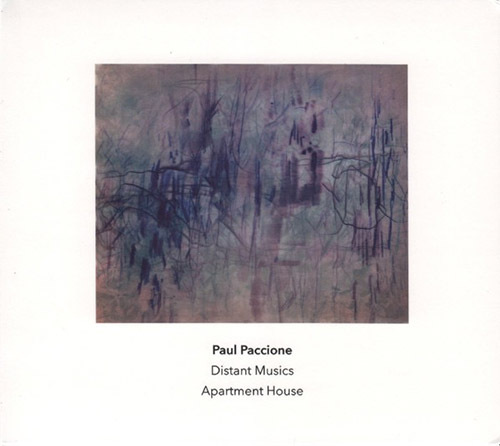


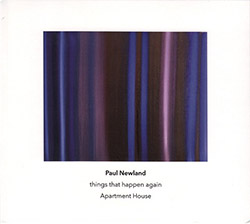


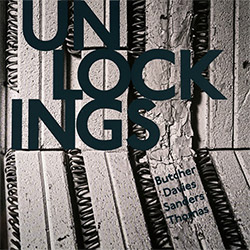
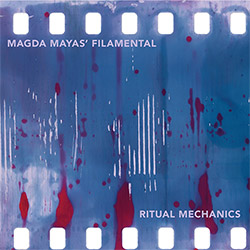

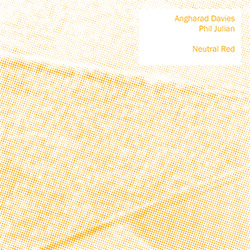

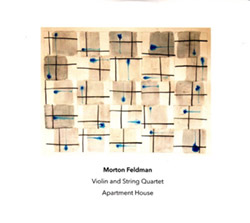
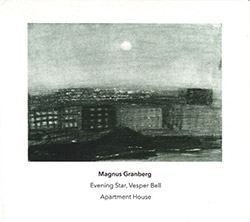
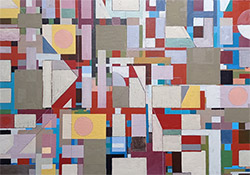

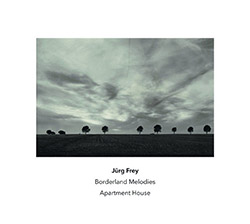
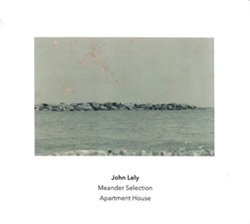
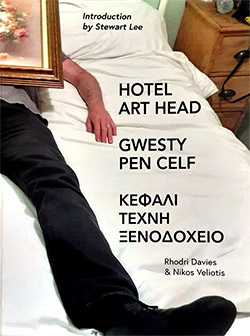
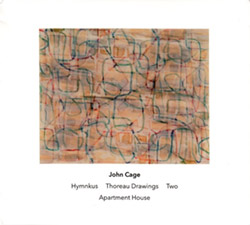
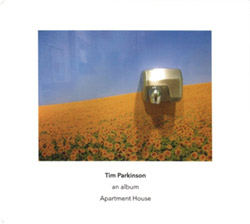
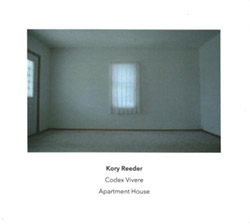


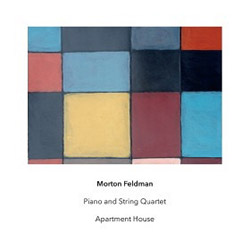

![Rodrigues, Ernesto / Nuno Torres / Guilherme Rodrigues: Whispers In The Moonlight - In Seven Movements [2CDs]](https://www.teuthida.com/productImages/misc4/35765.jpg)



![Cocks, Laura: FATHM [VINYL]](https://www.teuthida.com/productImages/misc4/36055.jpg)










![Ackerley / Prymek / Turner: All Hope With Sleeping Minds [CASSETTE]](https://www.teuthida.com/productImages/misc4/35950.jpg)
![Myers, David Lee : Tin Drop Tear [BOOK w/ DOWNLOAD]](https://www.teuthida.com/productImages/misc4/36030.jpg)



![Schindler, Udo / Sandy Ewen / Damon Smith: Munich Sound Studies Vols. 4, 5 & 6 [3 CDs]](https://www.teuthida.com/productImages/misc4/35966.jpg)






![Turbulence Orchestra & Sub-Units: Smear Out the Difficulties (Double Live) [2 CDs]](https://www.teuthida.com/productImages/misc4/36048.jpg)
![Perelman, Ivo / Tyshawn Sorey: Paralell Aesthetics [2 CDs]](https://www.teuthida.com/productImages/misc4/35871.jpg)


![Sjostrom, Harri: SoundScapes #4 Festival Berlin 2023 [3 CDs]](https://www.teuthida.com/productImages/misc4/35874.jpg)



![Glenn, Jordan: Flustered [CASSETTE]](https://www.teuthida.com/productImages/misc4/35948.jpg)


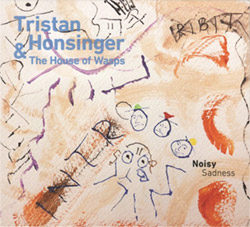
![Lindorff-Ellery, Evan: Church Recordings from Monhegan [CASSETTE]](https://www.teuthida.com/productImages/misc4/35949.jpg)
![Schindler, Udo / Werner Dafeldecker / Gunnar Geisse: Travelling Sound Images - Cognitive Transfers [Trio]](https://www.teuthida.com/productImages/misc4/35767.jpg)

![Egberth, Dennis: The Dennis Egberth Dynasty [VINYL]](https://www.teuthida.com/productImages/misc4/35549.jpg)


![Schindler, Udo / Rieko Okuda / Eric Zwang Eriksson: Disturbed Terrains [2 CDs]](https://www.teuthida.com/productImages/misc4/35330.jpg)






![Olencki, Weston : Pearls Ground Down To Powder [VINYL]](https://www.teuthida.com/productImages/misc4/35956.jpg)
![Myers, David Lee: Oculus [2CDs]](https://www.teuthida.com/productImages/misc4/35857.jpg)


![dustsceawung: dustsceawung [CASSETTE w/ Download]](https://www.teuthida.com/productImages/misc4/35753.jpg)




![Halls of the Machine: Atmospheres For Lovers And Sleepers [CASSETTE w/ DOWNLOAD]](https://www.teuthida.com/productImages/misc4/35806.jpg)



![AHC (Alexander Cooper): Lase [2 CDs]](https://www.teuthida.com/productImages/misc4/35754.jpg)



![Fagaschinski, Kai / Yan Jun : Graveyard Processions [VINYL w/ DOWNLOAD]](https://www.teuthida.com/productImages/misc4/35474.jpg)
![Brant, Cody / Carl Kruger: Smoke Detail [CASSETTE w/ DOWNLOAD]](https://www.teuthida.com/productImages/misc4/35551.jpg)








![Zorn, John / JACK Quartet: The Complete String Quartets [2 CDs]](https://www.teuthida.com/productImages/misc4/35609.jpg)

![Lonsdale, Eden: Dawnings [2 CDs]](https://www.teuthida.com/productImages/misc4/35480.jpg)






![Sanna, Claudio: Compositori Sardi Contemporanei II [2 CDs]](https://www.teuthida.com/productImages/misc4/35317.jpg)







![Zurria, Manuel: Fame di Vento [3 CDs]](https://www.teuthida.com/productImages/misc4/35167.jpg)
![Granberg, Magnus / Nattens Inbrott / Skogen: Holde Traume, Kehret Wieder! [2 CDs]](https://www.teuthida.com/productImages/misc4/35038.jpg)

![Electric Bird Noise / Derek Roddy: 8-10-22 [CD EP]](https://www.teuthida.com/productImages/misc4/35970.jpg)








![Elephant9 : Mythical River [VINYL]](https://www.teuthida.com/productImages/misc4/34624.jpg)



![Elephant9 with Terje Rypdal: Catching Fire [VINYL 2 LPs]](https://www.teuthida.com/productImages/misc4/35355.jpg)
![Deerlady (Obomsawin, Mali / Magdalena Abrego): Greatest Hits [VINYL]](https://www.teuthida.com/productImages/misc4/34876.jpg)







![Surplus 1980: Illusion of Consistency [CD]](https://www.teuthida.com/productImages/misc4/35069.jpg)
![Staiano, Moe: Away Towards the Light [VINYL + DOWNLOAD]](https://www.teuthida.com/productImages/misc4/35037.jpg)



![Caveira (Gomes / Sousa / Abras / Ferrandini): Ficar Vivo [VINYL]](https://www.teuthida.com/productImages/misc4/34643.jpg)
![Coley, Byron: Dating Tips for Touring Bands [VINYL]](https://www.teuthida.com/productImages/misc4/17906.jpg)

![Lost Kisses: My Life is Sad & Funny [DVD]](https://www.teuthida.com/productImages/misc4/lostKissesDVD.jpg)